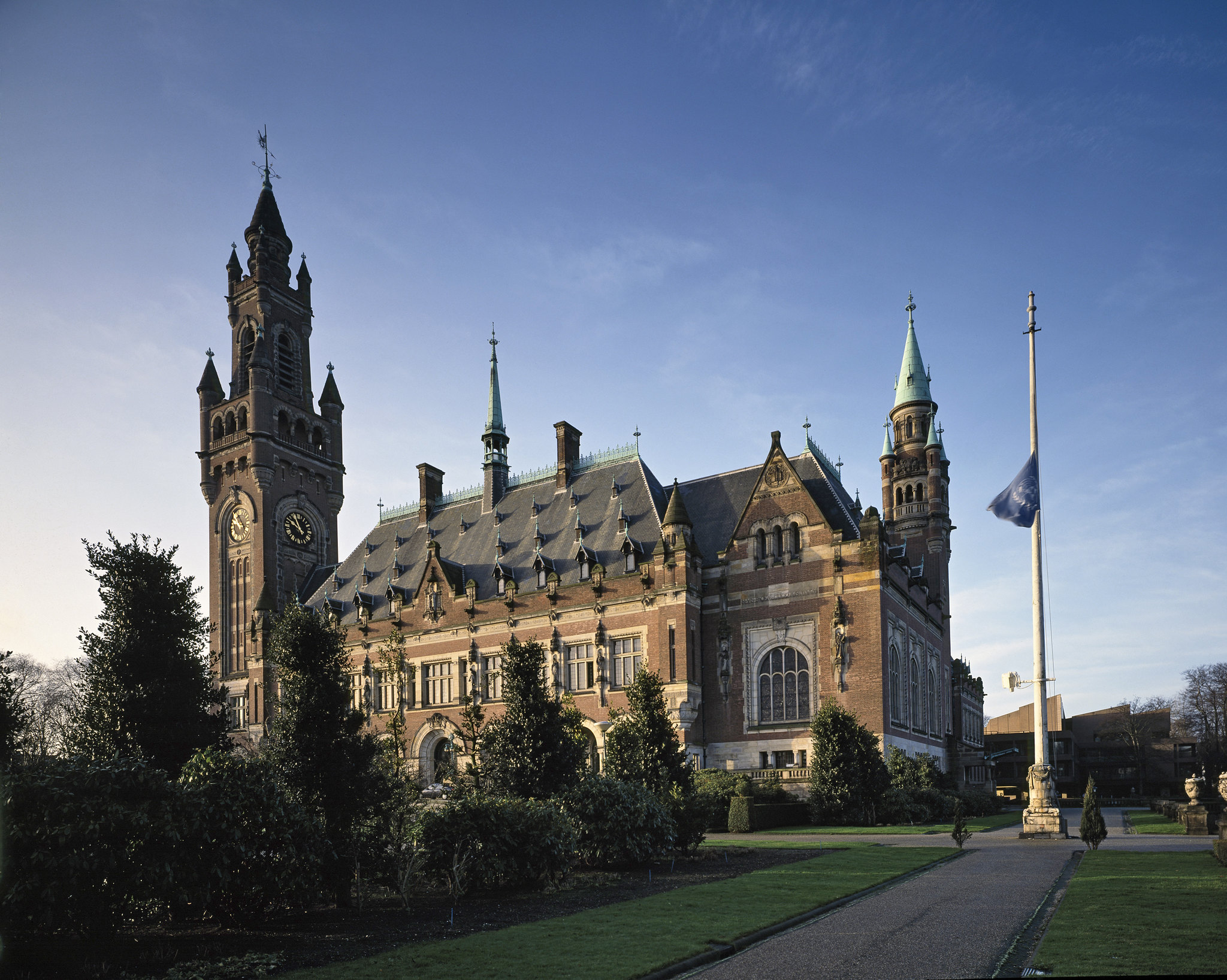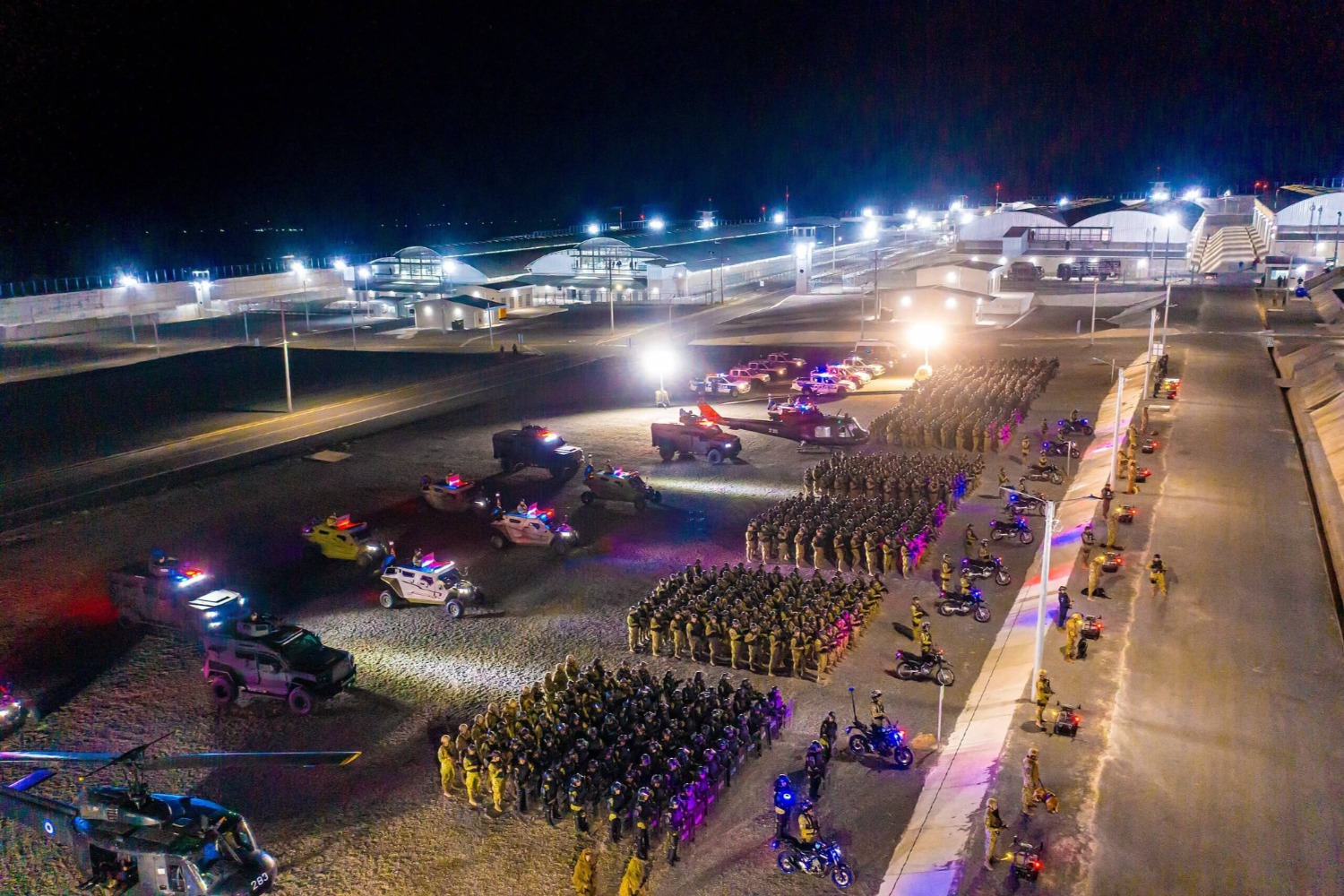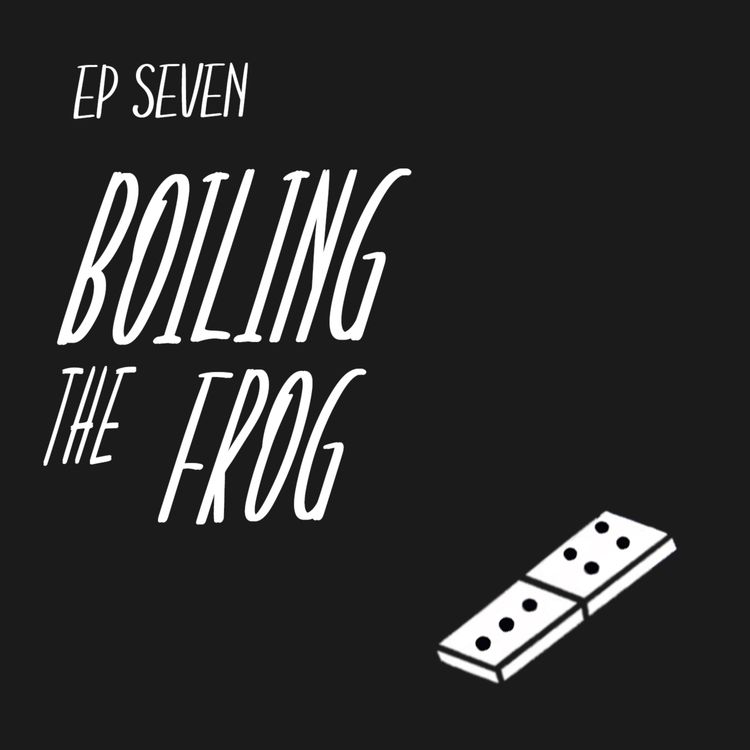What’s the Status of Ukraine’s Case Against Russia at the ICJ?
On Feb. 25, Ukraine took steps to challenge Russia’s allegations of Ukrainian-led genocide before the International Court of Justice. What has happened since?

Published by The Lawfare Institute
in Cooperation With

Introduction
On Feb. 24, Russian President Vladimir Putin announced a “special military operation” in Ukraine in order to combat an alleged Ukrainian-led genocide in the country’s eastern Donbas region. He asserted that Russia “had to stop that atrocity, that genocide of the millions of people who live there and who pinned their hopes on Russia, [is] on all of us,” and alleged “genocide by the Kyiv regime for eight years”—claims that were immediately criticized as an inaccurate and “baseless” attempt to justify an unjustified war.
On Feb. 25, Ukraine took steps to challenge Russia’s allegations before the International Court of Justice (ICJ). In its initiation of formal proceedings against Russia before the court, Ukraine argues that Russia’s justification for the invasion—allegations of genocide in the eastern regions of Luhansk and Donetsk—is false and an insufficient rationale for the use of force. On Feb. 26, Ukraine subsequently submitted a request for four provisional measures to protect its rights based on “the risk of irreparable prejudice and urgency.” This request includes an appeal to the court to order that Russia suspend military operations and ensure all actors take no further action in support of any such operations.
On March 16, the court issued its order on provisional measures, the first determinations made in the case. The ruling included several notable findings. The court rejected Russia’s argument that the court lacked jurisdiction; it asserted Ukraine’s “plausible right not to be subjected to military operations” by Russia on the basis of alleged genocide; and concluded that Russia must immediately cease its military offensive in Ukraine. Although this is not a full decision on the merits, it is a promising first step for Ukraine. The order gives an early indication on the status of several issues that the court will decide on for the full merits, including jurisdiction and standing. Of course, whether the court’s decisions can be adequately enforced is another question in and of itself.
Ukraine’s Petition and Request for Provisional Measures
Article 35(1) of the ICJ Statute—the court’s governing document—provides that any state party to the statute is entitled to appear before the court; and under Article 93 of the U.N. Charter, any state that is a party to the charter is by default a party to the ICJ. Since both Ukraine and Russia are members of the U.N., they are able to petition and appear before the court. According to Article 36 of the Statute of the ICJ, “The jurisdiction of the Court comprises all cases which the parties refer to it and all matters specially provided for in the Charter of the United Nations or in treaties and conventions in force.” To that end, parties to the court may bring forth a case over a disagreement to a treaty or convention in force (barring that ICJ jurisdiction is “specially provided for in” that “treat[y] [or] convention[] in force”) that involves a dispute of interpretation, a question of international law, the existence of a fact that would constitute a breach of agreement or contention concerning reparations related to said breach.
On Feb. 25, Ukraine submitted its application to the ICJ instituting proceedings before the court. Invoking Article 36 of the court’s statute in its application, Ukraine exercised its right to refer a matters to the court provided for in a “convention[] in force[,]” specifically, the Genocide Convention. Article IX of the convention contains a compromissory clause, which is a treaty clause that specifically refers all statutory issues concerning the Genocide Convention’s text to the ICJ for adjudication. The article reads:
Disputes between the Contracting Parties relating to the interpretation, application or fulfillment of the present Convention, including those relating to the responsibility of a State for genocide or for any of the other acts enumerated in article III, shall be submitted to the International Court of Justice at the request of any of the parties to the dispute.
Ukraine asked the court to exercise jurisdiction on the basis that “[t]here is a dispute between Ukraine and the Russian Federation within the meaning of Article IX relating to the interpretation, application or fulfillment of the Genocide Convention.” In other words, Ukraine used the Genocide Convention’s built-in dispute settlement mechanism to force the ICJ to rule on Russia’s interpretation of the term “genocide” as a pretext for invasion, to justify a backdoor ratione materiae jurisdiction (akin to subject matter jurisdiction) in a case with an unorthodox premise.
In its application to institute proceedings, Ukraine argues that Russia’s military action on and following Feb. 24 violates its right “to be free from unlawful actions, including military attack.” Russia’s violation of these rights, Ukraine asserts, is “based on a claim of preventing and punishing genocide that is wholly unsubstantiated.” Specifically, Ukraine requested relief from the court in six areas:
- Adjudge and declare that, contrary to what the Russian Federation claims, no acts of genocide, as defined by Article III of the Genocide Convention, have been committed in the Luhansk and Donetsk oblasts of Ukraine.
- Adjudge and declare that the Russian Federation cannot lawfully take any action under the Genocide Convention in or against Ukraine aimed at preventing or punishing an alleged genocide, on the basis of its false claims of genocide in the Luhansk and Donetsk oblasts of Ukraine.
- Adjudge and declare that the Russian Federation’s recognition of the independence of the so-called “Donetsk People’s Republic” and “Luhansk People’s Republic” on 22 February 2022 is based on a false claim of genocide and therefore has no basis in the Genocide Convention.
- Adjudge and declare that the “special military operation” declared and carried out by the Russian Federation on and after 24 February 2022 is based on a false claim of genocide and therefore has no basis in the Genocide Convention.
- Require that the Russian Federation provide assurances and guarantees of non-repetition that it will not take any unlawful measures in and against Ukraine, including the use of force, on the basis of its false claim of genocide.
- Order full reparation for all damage caused by the Russian Federation as a consequence of any actions taken on the basis of Russia’s false claim of genocide.
Ukraine therefore aims to disprove Russia’s allegations of genocide and in doing so invalidate the latter’s interpretation of the term—indeed, this is the primary judgment it seeks from the court.
However, full judgments by the court are rarely delivered swiftly—or, rather, given the particular urgency of the situation, within a time frame that would satisfy Ukraine’s desire to see a quick end to Russia’s military campaign inside its territory. As a result, one day after applying to institute proceedings, Ukraine asked the court to implement a set of provisional measures. These are interim rulings to preserve a party’s (or parties’) rights while the full case proceeds before the court, authorized under Article 41 of the ICJ Statute. In its application to institute proceedings, Ukraine invokes a right “to be free from unlawful actions, including military attack.” In the request for provisional measures, Ukraine says it seeks provisional measures to “protect its rights not to be subject to a false claim of genocide.” Ukraine argues that unlawful action “to prevent and punish alleged acts of genocide” where the existence of such acts are unsubstantiated “undermines the object and purpose of [the Convention], and diminishes the solemn nature of the Contracting Parties’ pledge to prevent and punish such crimes.” As a result, Ukraine asked the court to implement the following provisional measures:
- The Russian Federation shall immediately suspend the military operations commenced on 24 February 2022 that have as their stated purpose and objective the prevention and punishment of a claimed genocide in the Luhansk and Donetsk oblasts of Ukraine.
- The Russian Federation shall immediately ensure that any military or irregular armed units which may be directed or supported by it, as well as any organizations and persons which may be subject to its control, direction or influence, take no steps in furtherance of the military operations which have as their stated purpose and objective preventing or punishing Ukraine for committing genocide.
- The Russian Federation shall refrain from any action and shall provide assurances that no action is taken that may aggravate or extend the dispute that is the subject of this Application, or render this dispute more difficult to resolve.
- The Russian Federation shall provide a report to the Court on measures taken to implement the Court’s Order on Provisional Measures one week after such Order and then on a regular basis to be fixed by the Court.
For its part, Russia did not attend the provisional measures hearing—and while Russia is under no obligation to do so, the court can (and did) take “formal note” under Article 49 of the ICJ Statute of its failure to do so. Russia instead chose to file a protest with the ICJ on March 5 challenging its jurisdiction, claiming that its actions were taken on other international legal grounds than the Genocide Convention. Instead, Russia invoked Article 51 of the U.N. Charter, which pertains to the right to self-defense. Russia cites an address given by President Vladimir Putin on Feb. 24, which it claims as the “legal basis for the military operation.” The progression of this stated argument is twofold: First, Russia claims that the recognition of Donetsk and Luhansk as independent states is “related to the right of self-determination of peoples under the United Nations Charter and customary international law.” With independent recognition, Russia then seeks to align its military operations in Ukraine with the right to self-defense. President Putin, on Feb. 24, says: “The people’s republics of Donbass [encompassing the regions of Donetsk and Luhansk] have asked Russia for help. In this context, in accordance with Article 51 (Chapter VII) of the UN Charter.” It should be noted that while the matter of jurisdiction is to be left to the court to decide fully on the merits, Russia’s claim for the justification of its actions under Article 51 of the U.N. Charter has sustained no credibility in analysis by legal scholars.
The Court’s Decision on Provisional Measures
On March 16, the ICJ, led by President of the Court Joan Donoghue, returned its order on provisional measures in favor of Ukraine’s requests, after hearing Ukraine’s argument on the established provisional measures test. Over the years, the court’s test for granting preliminary measures has changed and evolved; the current iteration of the test is that (1) the court must have prima facie jurisdiction (with the full determination made later at trial); (2) the state plausibly has the right it seeks to protect through the measures; and (3) there is a risk of irreparable prejudice to said right pending adjudication. In ordering provisional measures, the ICJ ruled with Ukraine on all three elements of the test.
The court first found the jurisdiction argument convincing, ruling that what constitutes a “dispute” is a matter for objective determination and a matter of substance, and that the evidence so far presented demonstrates prima facie that opposing statements by Russia and Ukraine refer to the convention and open the door to Article IX jurisdiction. As earlier discussed, Ukraine’s application to the court—both in full and in seeking provisional measures—argues that the text in Article IX of the Genocide Convention provides a sufficient basis for the court’s jurisdiction over the matter.
The court specifically rejected Russia’s jurisdictional opposition, recognizing that “since 2014, various State organs and senior representatives of the Russian Federation have referred … to the commission of acts of genocide by Ukraine in the Luhansk and Donetsk regions.” The court references the same letter Russia provided to the court in its written response to the case on Feb. 24. The court notes that President Putin, in his Feb. 24 speech, expressed the “purpose” of impending military operations as “to protect people who have been subjected to abuse and genocide by the Kyiv regime for eight years.”
The court notes several additional instances between Feb. 24 and Feb. 26 where Russia makes a similar argument as an underlying reason for the use of force.
The court reasons that while at the current stage of proceedings, “the Court is not required to ascertain whether any violations of obligations under the Genocide Convention have occurred,” it is recognizable that “[t]he statements made by the State organs and senior officials of the Parties indicate a divergence of views.” The court concludes that “the acts complained of by the Applicant appear to be capable of falling within the provisions of the Genocide Convention.” Therefore, the court finds the existence of prima facie jurisdiction, which provides authority to rule on the application and extent of provisional measures.
Notably, the court also rejects Russia’s suggestion that its justification for the use of force connected to Article 51 precludes the court’s jurisdiction over a relevant dispute concerning the Genocide Convention. “The above-referenced assertion of the Russian Federation does not therefore preclude a prima facie finding by the Court that the dispute presented in the Application relates to the interpretation, application or fulfillment of the Genocide Convention.”
On the question of plausibility, Ukraine asserted at the provisional measures hearing its right to demand good-faith performance of the Genocide Convention and not to be subjected to an abuse or misuse of it. In other words, Ukraine argued that Russia’s pretextual use of allegations of genocide are themselves an abuse of the treaty that a good-faith interpretation would never support, and Ukraine therefore has the right not to be subjected to actions based on this abuse. This idea, they argued, stems largely from states’ rights to enjoy the protection of treaties by demanding good-faith performance.
The court agreed with Ukraine on this question. It stated that, in addition to a lack of evidence before it to substantiate Russia’s allegations, the court doubted that the Genocide Convention “authorizes a Contracting Party’s unilateral use of force in the territory of another State for the purpose of preventing or punishing an alleged genocide,” as opposed to what would be a good-faith interpretation through a multilateral response. As such, it is plausible that the right not to be subjected to military operations for preventing alleged genocide exists in Ukraine. The court also agreed that there existed a sufficient nexus between this right and the measures requested.
Finally, the third question of urgency is perhaps the easiest prong of the provisional measures test to satisfy; particularly so in this case, given the immediacy of the current case and the daily global scrutiny of the situation in Ukraine. During the hearings on provisional measures, Ukraine claimed to fulfill four factors that the court considers when making an urgency determination: irreparable harm, whether the population at risk is particularly vulnerable, the “fragility” of the situation and its risk of aggravation, and the risk of recurrence of harm. To satisfy these chosen factors, Ukraine cited several “impacts” on the country as a result of the invasion, including the commission of further war crimes, humanitarian impacts, and the environmental impact of Russia’s aggression. The court agreed with Ukraine’s assessment of factors, acknowledging the human toll that Russia’s invasion has taken, as well as the material damage and disastrous living conditions it has created. The court also acknowledged the growing refugee crisis and concluded that the combination of these factors is more than sufficient to show urgency.
The court then returned its order in Ukraine’s favor by a vote of 13-2. Citing to Article 75(2) of the Rules of the Court, the ICJ recalled its right to order measures that are, in whole or in part, other than those requested by the applicant. It then went on to order an overall broader implementation of Ukraine’s requests.
First, whereas Ukraine had asked for a halt to the military operations based on the allegation of genocide, the court instead ordered a complete halt to Russian military activities in Ukraine, saying that Russia must “suspend the military operations that it commenced on 24 February 2022 in the territory of Ukraine,” omitting the requirement that they be based on the genocide allegations. Presumably, this all-encompassing language would apply to Russia regardless of their objection and stated justification, although functionally, it serves the same purpose.
Second, Russia must ensure that “any organizations and persons which may be subject to its control or direction, take no steps in furtherance of the military operations referred to” in the previous point. This language mimics almost precisely that of Ukraine’s request, save for the omission of “influence” after control and direction. This could make the order somewhat more lax than Ukraine had hoped for, as Russia might therefore not be responsible for fighting units not under their direct control (such as Belarusian troops or Syrian volunteers).
Finally, the court also indicated that both Russia and Ukraine must “refrain from any action which might aggravate or extend the dispute.” Once again, this language is broader than originally requested by Ukraine as it applies to the latter, a decree that likely does not extend to legitimate Ukrainian self-defense, but likely prohibits Ukraine from offensive actions outside of its borders.
The two dissenting judges were vice president of the court, Kirill Gevorgian of Russia, and Judge Xue Hanqin of China. Gevorgian, in a separate declaration, wrote that he disagreed with the court’s decision to issue provisional measures on the basis that he does “not believe that the Court has jurisdiction to entertain this case.” He argued, “The acts invoked by Ukraine do not fall under the scope of the Genocide Convention. The actual dispute relates to the use of force which is not covered by the Genocide Convention.” Gevorgian’s dissent is a close mirror to Russia’s argument in its written statement to the court at the time of initial hearings. Gevorgian’s participation in the case as a Russian national is not automatically precluded by a conflict of interest; under Article 31 of the ICJ Statute, judges of the nationality of each party retain their right to sit in the case. However, this influence can be balanced out under 32(2) by the other party’s appointment of an ad hoc judge of its own nationality. Ukraine has already exercised this right, choosing French national Yves Daudet as its judge on the bench.
Indeed, in a separate opinion, Judge Patrick Robinson favored Ukraine’s position and stated that “Russia’s stated reliance on the right of self-defence under the Charter by the President on 24 February 2022 does not serve to define the dispute between the Parties as one relating to the use of force.”
Judge Georg Nolte took a similar position as Robinson, writing in favor of Ukraine’s argument for jurisdiction. He contended that Ukraine sufficiently demonstrated that Russia “acted in a way ‘that is capable of coming within the provisions of the Genocide Convention’” as a result of the invasion being undertaken “with the stated purpose of preventing genocide.”
What’s Next?
Now that provisional measures have been ordered, the question of enforceability takes center stage. Under ICJ Statute Article 41(2), upon issuance, notice of provisional measures is given to the U.N. Security Council, essentially putting the council on notice of the issue. Meanwhile, U.N. Charter Article 94 compels each member of the United Nations to comply with the decisions of the ICJ in all cases to which they are parties, which on its face seems to require Russia’s compliance—particularly since in the LaGrand case, the ICJ ruled that provisional measures are just as binding on parties as full judgments.
However, should Russia choose not to acknowledge the court’s order, the language of Article 94 also authorizes Ukraine to submit said noncompliance to the Security Council, which may then decide on measures to be taken to give effect to the judgment “if it deems necessary.” Russia’s status as a permanent member would seem to pose a significant obstacle to such enforcement; and even though mechanisms do exist in the U.N. Charter that could see Russia recusing itself from such a vote, this still does not guarantee an enforcement outcome.
In terms of monitoring compliance with its measures, in December 2020, the ICJ adopted Article 11 of the 1976 Resolution Concerning the Internal Judicial Practice of the Court, a part of its governing procedures. The article states that where the court indicates provisional measures as it has done here, it will form an ad hoc committee to monitor implementation of the measures and relay reports to the full court. It remains to be seen how this relatively new mechanism will be implemented.
In any case, having ordered provisional measures, the court may now proceed to hear the full case on its merits. On March 23, the court issued an order laying out the timeline for the next rounds of briefing for the full case: Ukraine has until Sept. 23 to submit its pleading and Russia has until March 23, 2023 for its counter. Although the court’s issuance of provisional measures signals its belief that there is sufficient evidence to warrant an immediate halt to the fighting, it does not definitively settle these questions, since the legal standards for provisional measures are lower than those of full merits.
It will thus need to decide on questions of jurisdiction, fact-finding, and law with a view toward issuing a final judgment on the case. For one, concluding that there is prima facie jurisdiction to issue provisional measures is not equivalent to a determinative decision that the court does in fact have jurisdiction, and it remains an open question for Russia to challenge. Of course, the court will also need to determine whether the rights that Ukraine plausibly asserted were in fact violated and, if so, what the appropriate remedies are. Ukraine has specified that the court “[o]rder full reparations for all damage caused” as the result of any action taken by Russia on the “false claim of genocide.”
Even if the court remains sympathetic to Ukraine’s arguments around military activities, it does not guarantee victory on these questions. Ukraine may be facing an uphill battle on its requests beyond halting military activities as the crux of its argument rests on the Genocide Convention, which contains explicit provisions for punishing perpetrators of genocide but not for those misinterpreting its terms.
There may also be intervention from other parties (states), as allowed under ICJ Statute Article 62. Since genocide is such a broad issue and so many states are party to the Genocide Convention, there is no shortage of parties that could intervene.
All judgments of the court are final and without appeal per ICJ Statute Article 60. And although the same standard as applied to provisional measures has not been formalized by the court, it ruled in the LaGrand case that any such measures were legally binding.
It remains to be seen whether Russia will choose now to participate in future proceedings, or how it will respond to these provisional measures. Since the court’s ruling on March 16, Russia’s military operations in Ukraine have continued, with no indication of plans to act otherwise.






